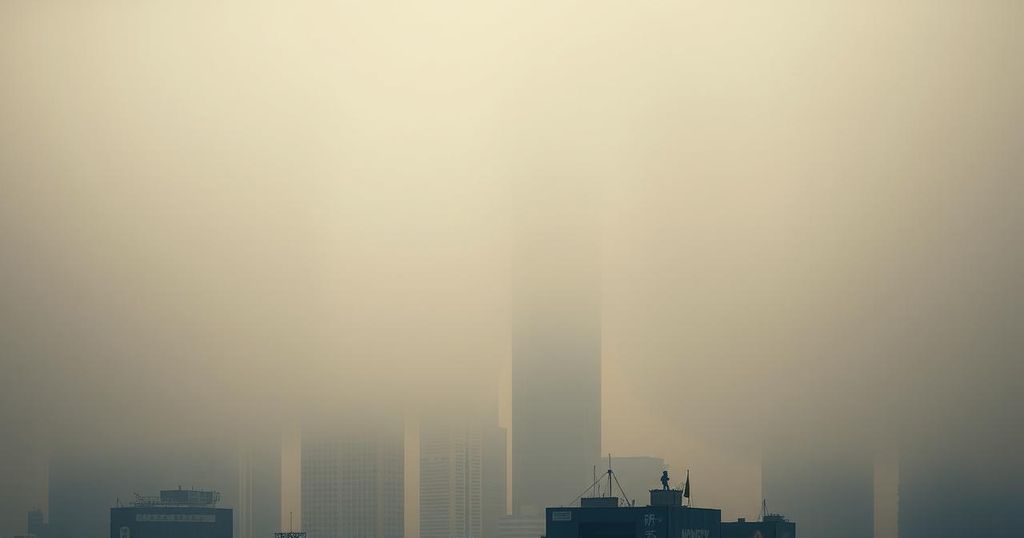In 2024, Bangladesh was reported as the second most polluted country, with PM2.5 levels exceeding WHO guidelines by over 15 times. Dhaka was the third most polluted capital. Only seven countries met WHO air quality standards. The U.S. halted its global air quality monitoring, adding to data gaps. WHO reported that air pollution is a significant global health risk, linked to millions of deaths and various health conditions.
Bangladesh ranked as the second most polluted country globally in 2024, with average PM2.5 levels exceeding World Health Organization (WHO) guidelines by over 15 times. According to Swiss air quality monitoring firm IQAir, Bangladesh’s PM2.5 level was recorded at 78 micrograms per cubic meter (µg/m³), trailing only Chad at 128 µg/m³. Following Bangladesh were Pakistan, the Democratic Republic of the Congo, and India.
Dhaka, the capital of Bangladesh, was reported as the third most polluted capital city with the same PM2.5 level as Bangladesh’s national average of 78 µg/m³. New Delhi was noted as the most polluted capital, followed by Chad’s N’Djamena and the Democratic Republic of the Congo’s Kinshasa. Islamabad, the capital of Pakistan, also ranked among the top five.
IQAir’s data indicated that only seven countries met the WHO air quality standards in 2024, including Australia, New Zealand, and several Caribbean nations. Researchers highlighted the increased challenge in addressing air pollution, particularly following the cessation of the United States’ global air quality monitoring initiatives, which will likely exacerbate existing air quality data gaps.
In India, there was a slight decline of 7% in average PM2.5 levels, bringing them down to 50.6 µg/m³. Despite this reduction, the country still hosted 12 of the world’s 20 most polluted cities, with Byrnihat being the most polluted city globally, recorded at 128 µg/m³. The study utilized data from over 40,000 monitoring stations worldwide.
Additionally, significant data gaps, especially in Asia and Africa, hinder the understanding of global air quality. Many nations relied on sensors located at U.S. embassies for pollution data, but the recent budgetary restrictions have led to the discontinuation of this service, thereby eliminating over 17 years of air quality data.
Frank Hammes, Global CEO of IQAir, reaffirmed the critical threat air pollution poses to human health and environmental stability. He remarked on the urgent need for awareness regarding air quality exposure, highlighting that the U.S. has recognized access to clean air as a universal human right.
According to WHO, a staggering 99% of the global population resides in areas that do not meet recommended air quality levels. Air pollution is a leading risk factor for mortality worldwide, particularly among children under five. In 2021, pollution was responsible for 8.1 million deaths, predominantly caused by PM2.5 exposure, which is also linked to several severe health issues including asthma, cancer, and developmental disorders in children.
In conclusion, Bangladesh continues to grapple with severe air pollution, ranking as the second most polluted nation globally. Dhaka remains among the world’s dirtiest capitals, highlighting the urgent need for addressing air quality. Despite some progress in countries like India, significant global challenges persist, exacerbated by recent reductions in air quality monitoring capabilities. Awareness and action must be prioritized to combat the widespread health risks associated with air pollution.
Original Source: asianews.network




